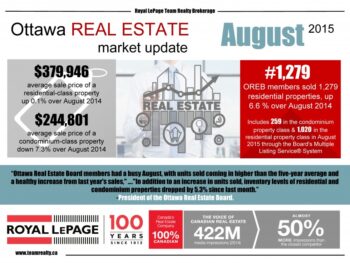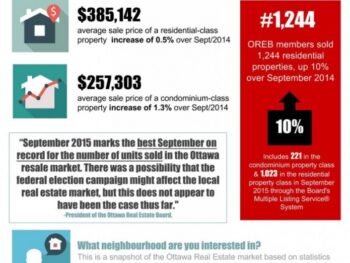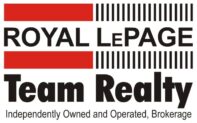

Machu Picchu Challenge for Shelter
Machu Picchu Challenge for Shelter August 2015 in Machu Picchu, Peru In support of the Royal LePage Shelter Foundation people from Royal LePage offices across Canada have started the trek to Machu Picchu to help restore hope for women and children escaping violence. “For eight days, 70 enthusiastic supporters are trekking at high altitude, camping in tents, and forgoing running water, electricity and cellphone service to raise funds and awareness for the Royal LePage Shelter Foundation. Each participant was required to raise $5,000 and will be covering their own travel expenses.” …read more Royal LePage Team Realty is proud to have our sales representative Hanna Browne representing our company and supporting this amazing cause! Good luck to Hanna and all of the participants we can’t wait to hear about your adventures. Source: Blog

Should you let children choose their bedroom paint colours?
Should you let children choose their bedroom paint colours? In this Canadian Living post, Brett Walther suggests a way to let your child participate when deciding what colour(s) to paint their room while also avoiding a choice that is unacceptable to you, or one that they will want to change next week. The key is to guide their choice by presenting a few options that appeal to them while also meeting your own criteria. To read more click here. Source: Blog

CMHC announces new rules to make it easier for homeowners to rent out property
In this Financial Post article, Garry Marr discusses the impact of upcoming changes from Canada Mortgage and Housing Corp (CMHC) that will permit homeowners to count 100% of the income from their secondary units when qualifying for a loan. Currently, homeowners with legal units can only count 50% of the income from legal rentals. By making it easier to borrow money, Marr suggests CMHC will be bringing more people into the market, and that is expected to boost affordable housing, especially in hot markets like Vancouver where secondary units make up almost 20% of the city’s rental stock. To read more click here. http://www.financialpost.com/m/wp/blog.html?b=business.financialpost.com//personal-finance/mortgages-real-estate/cmhc-announces-new-rules-to-make-it-easier-for-homeowners-to-rent-out-property Buying a property with a rental unit is a great way to own a home while someone else helps pay your mortgage! Please contact us for info & available income properties. Source: Blog

Strong summer performance for Ottawa’s resale market
Check out the latest Ottawa Real Estate Statistics from the Ottawa Real Estate Board The summer real estate market has been strong in the Ottawa area, as we head into fall we’ll keep you updated on the latest Ottawa Real Estate market news! Are you interested in a specific neighbourhood? Please contact us! We have the latest Ottawa neighbourhood statistics available. _____________________________________________________ Members of the Ottawa Real Estate Board sold 1,279 residential properties in August through the Board’s Multiple Listing Service® System, compared with 1,200 in August 2014, an increase of 6.6 per cent. The five-year average for August sales is 1,234. “Ottawa Real Estate Board members had a busy August, with units sold coming in higher than the five-year average and a healthy increase from last year’s sales,” says David Oikle, President of the Ottawa Real Estate Board. “In addition to an increase in units sold, inventory levels of residential and condominium properties dropped by 5.3 per cent since last month, and cumulative days on the market was an average of 89 days.” August’s sales included 259 in the condominium property class, and 1,020 in the residential property class. The condominium property class includes any property, regardless of style (i.e. detached, semi-detached, apartment, stacked etc.), which is registered as a condominium, as well as properties which are co-operatives, life leases and timeshares. The residential property class includes all other residential properties. The average sale price of a residential-class property sold in August in the Ottawa area was $379,946, a decrease of 0.1 per cent over August 2014. The average sale price for a condominium-class property was $244,801, a decrease of 7.3 per cent over August 2014. The Board cautions that average sale price information can be useful in establishing trends over time but should not be used as an indicator that specific properties have increased or decreased in value. The average sale price is calculated based on the total dollar volume of all properties sold. “It is important to note that the increase in units sold is for both residential and condominium properties,” says Oikle. “Also, we continue to see an increase in the number of condominium units sold in comparison to 2014, and the year-to-date condominium sales are now close to on par with last year.” “The majority of buyers in Ottawa continue to buy properties in the $300,000 to $400,000 price range, closely followed by the $200,000 to $300,000 range,” says Oikle. “In addition to residential and condominium sales, OREB members assisted clients with renting 295 properties in August, and over 2,000 since the beginning of the year.” Source: Blog

Your Annual Home Maintenance Schedule
Following an annual maintenance schedule is an essential step in protecting the value of what will probably be the largest investment of your life – your home. First time home owners, or those lacking experience may struggle with this task and overlook important elements. Here are some guidelines to help you create a maintenance program that suits your needs. Benefits of Home Maintenance Regular preventive maintenance identifies minor repairs before they become expensive, major repairs. It also preserves your home’s market value. One study found that “greater than $5 return for every $1 spent on preventive maintenance is not unusual”. Other rewards include: extended life for your home’s components, equipment and operating systems; improved energy efficiency and a reduced environmental footprint; lush, healthy vegetation and attractive landscaping; assurance that your living space is safe and comfortable; improved presentation and continuing exterior appeal; and avoiding home inspection shockers when you sell. Monthly Home Maintenance Routines Clean or change all filters; test fire extinguishers and smoke alarms; inspect switch boxes and electrical cords; vacuum heat registers/vents; check that air vents are clear; flush the water heater to remove sediment; and clean the garbage disposal. Fall Home Maintenance Routines Inspect roof, siding and foundation; clean the chimney; winterize/store yard furniture and tools; service the snow blower; cover your air conditioner and any vegetation that needs protection; service furnaces/stoves; get firewood and de-icers; clean gutters and downspouts; clean the dryer vent; check the water heater for leaks; “close” the pool. Winter Home Maintenance Routines Periodically shovel snow away from the foundation; check the basement for leaks during thaws; remove excess snow and ice dams from roofs/gutters; vacuum bathroom exhaust fan grills; vacuum refrigerator and freezer coils and empty and clean drip trays; service the lawnmower; clean drains in sinks, tubs, showers, and dishwashers; hang holiday decorations early (milder weather and replacements are in stock). Spring Home Maintenance Routines Inspect roof, siding, foundation and chimney; flush hot water heaters; fertilize/seed lawn; wash and check caulking and weather stripping for windows/doors/screens; clean gutters and downspouts; wash interior walls/ceilings and inspect the paint; seal holes or cracks that invite insects or pests; service the air conditioner; “open” the pool; inspect the driveway; Summer Home Maintenance Routines Service the garage door and operating system (chain, hinges, opener); inspect exterior paint for cracking or blisters; ensure exterior sockets and fixtures are working and bulbs light; clean dryer vent, kitchen exhaust-fan filter; defrost/clean freezers and fridges including the coils; check plumbing (sinks, showers, toilets, dishwasher) for leaks; seal tile grout; clean the garage and seal the floor; “open” the pool; prune trees and shrubs. Bottom line: spend a little now on scheduled preventive maintenance or spend a lot later and risk catastrophic damage to yourself and/or your home. Source: Blog

The Inside Scoop on the Best Season to Sell Your Home
Think you need to wait until Spring to sell your home? You may want to think again if you’re ready to sell now. In this HGTV.com post, Gavin Chen challenges conventional wisdom that the best time to sell is spring and the best time to buy is fall. Statistically, spring has the most competing sellers in the market, so you might have to stage your home to get an advantage. Chen suggests it is important to highlight the sellable features of your home in any season. Although there are fewer buyers in the December – January period (holidays, travel), the warmth of a showpiece fireplace will make a favourable impression during winter viewings, in summer, creating inviting outdoor spaces is a great way to help your house stand out. The article suggests avoiding early summer listings because people are relishing the seasonal change, but in recent years the Ottawa Real Estate market in June and July have proven to be strong and stable…click here to read the full story from HGTV Source: Blog

How Google Sunroof is Changing Homeowners’ Costs
How Google Sunroof Works Employing the high-resolution aerial mapping used by Google Earth, Project Sunroof calculates the amount of sunlight reaching your roof to assess its potential for solar power. It takes a variety of factors into account including local weather conditions, shade from nearby trees and buildings and sun positions throughout the year. The tool combines this information with data from your household’s monthly electricity bill, factors in panel orientation and tilt to the roof surface to calculate average monthly and annual solar radiation, recommends the size of solar installation needed and estimates the cost to purchase or lease the hardware as well as the amount that could be saved with solar panels. The tool is only available in the San Francisco Bay Area, Fresno and Boston, however, should Google decide to expand that coverage, they have ample capital reserves to act quickly. They might offer serious competition to the Australian Photovoltaic Institute’s Live Solar Potential Tool, which currently provides similar services. How Google Sunroof is Changing Homeowners’ Costs Photovoltaic (PV) solar panels harness the power of the sun by allowing photons, or particles of light, to knock electrons free from atoms, generating a flow of electricity. The electric current can power your home’s appliances or be put back into the grid. Google Sunroof has developed a tool to help homeowners assess the solar power potential of their roof. Improvements to Photovoltaic Technology In the 1980′s photovoltaics consumed more energy than they produced over their lifetime. Now the energy return ratio (ERR) on solar panels has improved exponentially. According to Professional Engineering magazine, the energy payback times (EPBT), the time it takes to produce all the energy used in their lifespan, is currently are between 6 months and 2 years. And, with life cycles of 30 years, their ERR is 60:1 and 15:1. In other words, solar panels produce 15 – 60 times the energy required to make them. Advantages of Net Metering Since their energy source is the sun, solar panels produce “clean” electricity, without emitting carbon. And, many locations, including Ontario, offer “Net Metering” which means the utility credits a homeowner for solar energy that is not consumed by the home. You send the excess electricity you generate to the local distribution system for a credit toward future energy costs. In essence, it’s a “trade” of electricity you supply against electricity you consume. Source: Blog

Home Buyers: Working with a REALTOR®
Real estate has undoubtedly become one of the biggest industries in the world. Buying and selling of real estate property are obviously major financial undertakings for anyone and these transactions need to be executed in a professional way. With this in mind, working with a REALTOR® is crucial in selling or buying deal of real estate property. In Ottawa, REALTORS® have their own professional association known as the Ottawa Real Estate Board. From this association, our fully trained REALTORS® have insider access to MLS statistics about real estate activity, sales of property, the median price and market conditions. Since the interpretation of these statistics is best known to them, then REALTORS® are crucial professionals in any buying or selling deal. This is because they assist a client in proper interpretation of these coded statistics and their proper implementation. For Home Buyers, Real estate agents provide credible information about potential real estate property matches. A great real estate agent will ask the right questions to help buyers choose the right home at the right price, in a neighbourhood that will work best for them. They spare clients a lot of time by linking them to potential properties and sellers quickly. REALTORS® also help buyers to acquire property at the best possible price. Since Real Estate agents in Ottawa know the prices in the market, they are able to negotiate with sellers for the lowest prices possible. Ultimately, buying property becomes an easy job as realtors seal deals competently and professionally. Realtors are therefore very important parties in buying or selling deals due to their vast knowledge of real estate business. Thinking of Buying in the Ottawa area? Once of our trained Real Estate Representatives would be delighted to assist. Please contact us for details. Source: Blog

Best September on record for number of Ottawa Real Estate resales!
What a great month for Ottawa Real Estate! See below a snap shot of what’s happening in the Ottawa Real Estate Market from the Ottawa Real Estate Board published October 5th, 2015 Interested in a specific neighbourhood? We have access to all of the latest real estate statistics at our fingertips! Please contact us and we will send you a no-cost report on the areas you want to know about. From OREB news: Members of the Ottawa Real Estate Board sold 1,244 residential properties in September through the Board’s Multiple Listing Service® System, compared with 1,131 in September 2014, an increase of 10 per cent. The five-year average for September sales is 1,137. “Ottawa Real Estate Board members continued their active summer into a busy fall,” says David Oikle, President of the Ottawa Real Estate Board. “In fact this September marks the best September on record for the number of units sold in the Ottawa resale market. There was a possibility that the federal election campaign might affect the local real estate market, but this does not appear to have been the case thus far.” September’s sales included 221 in the condominium property class, and 1,023 in the residential property class. The condominium property class includes any property, regardless of style (i.e. detached, semi-detached, apartment, stacked etc.), which is registered as a condominium, as well as properties which are co-operatives, life leases and timeshares. The residential property class includes all other residential properties. “Inventory levels continued to decline; by over 4 per cent since last month, bringing the Ottawa resale market into balanced territory,” says Oikle. “Cumulative days on market increased slightly to 93 days, up from 89 days in August. In addition, the average sale price remains steady.” The average sale price of a residential-class property sold in September in the Ottawa area was $385,142, an increase of 0.5 per cent over September 2014. The average sale price for a condominium-class property was $257,303, an increase of 1.3 per cent over September 2014. The Board cautions that average sale price information can be useful in establishing trends over time but should not be used as an indicator that specific properties have increased or decreased in value. The average sale price is calculated based on the total dollar volume of all properties sold. “The highest concentration of properties sold continues to be in the $300,000 to $400,000 price range, followed closely, again, by the $200,000 to $300,000 range,” says Oikle. “In addition to residential and condominium sales, OREB members assisted clients with renting 250 properties in September, and over 2,300 since the beginning of the year.” Source: Blog

Income Properties: What You need to Know about Buying an Investment Property
“Don’t wait to buy land, buy land and wait” – Will Rogers Income Properties: Are you Ready? Owning a rental property may seem like a licence to print money. Interest rates are low, the Ottawa Real Estate Market is stable …what could be easier? Buy a property, lease it, collect cheques and plan your retirement. But…before purchasing an income property, you should be aware of the benefits and drawbacks. Advantages of Income Properties: You pay less tax. Because your secondary property is a business, you can deduct certain expenses from your income (mortgage interest, property taxes, insurance, maintenance/upgrades, property management and utility bills) and reduce your taxes. Meet with an accountant or financial adviser to discuss your situation. Rental cheques provide a steady monthly income Other kinds of investments may pay out less often or income may be less predictable. For a rental property, answer this question: when you subtract your mortgage and operating costs, will the property generate a steady monthly income? The value of your investment can increase Historically, property values rise and the rental income increases over time. Don Campbell, senior analyst at the Real Estate Investment Network in Vancouver, believes “a good piece of real estate is like a blue chip stock. It won’t make you rich overnight, but it will perform well.” You may be able to deduct losses for tax purposes If expenses exceed rental income, you may be able to deduct that loss from other sources of income. An accountant can help you figure out the tax and estate planning repercussions. Income Properties: Make sure you’re ready! You accept the responsibilities and challenges of property management Rentals need regular maintenance and repairs – sometimes on an emergency basis. Filling vacancies can be expensive and time consuming. Tenants can be challenging, especially if they don’t pay their rent and you need the money. You have to decide if you want to invest “sweat equity” and manage the property or hire a landlord. Real Estate Prices and Setting Realistic Expectations The rental property market can be volatile. “If the unemployment rate spikes or real estate prices collapse, then your income property investment might run into difficulties as well,” says Mr. Milevsky of York University’s Schulich School of Business. The key is location, location, location. Select an area that is expecting employment and population growth to ensure long term demand is good. Talk to your realtor about neighbourhood demographics and average rent in the area to ensure anticipated rental income is appropriate for the location. Home buyers can save money on their mortgage buying a multi-unit building such as a duplex or triplex, living in one unit and renting out the others. If you are considering downsizing in the coming years, buying a condo or townhouse as a rental property can be a great way to plan for the future. It may be difficult to finance the purchase In most cases you must have a down payment of at least 20% when you buy a second property. Meet with your mortgage broker before you start hunting for an investment property, it will save you precious time and energy in the long run! Questions? Talk to one of our experienced realtors, we’re here to help. Source: Blog

James Dean
Sales Representative
Royal LePage Team Realty
1335 Carling Avenue
Ottawa, Ontario
K1Z 8N8
Office: 613-725-1171
Direct: 613-293-2088
Fax: 613-725-3323
Toll Free: 1-800-307-1545
James@JamesDean.ca